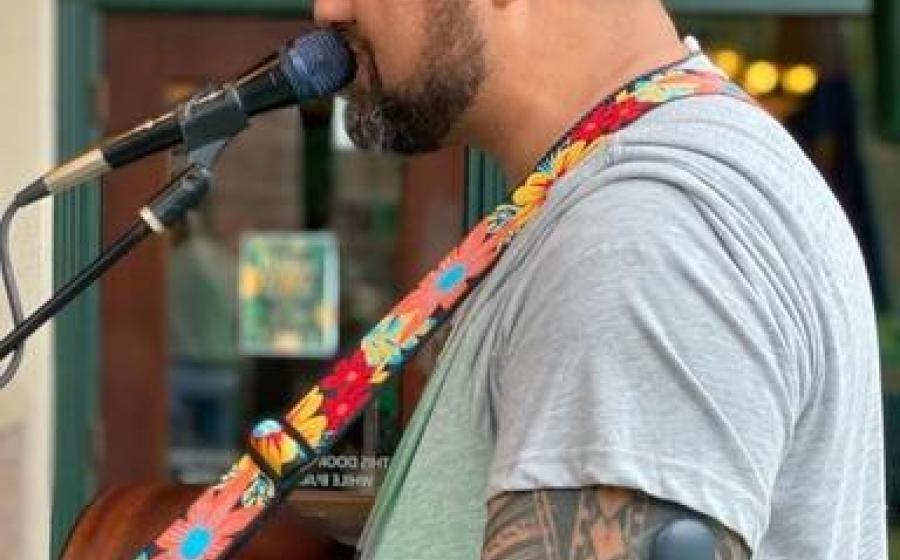(NewsUSA) - As the cold of winter fades, spring brings a fresh sense of renewal—and for many, it’s the first time in months they’ll be showing off their legs again. But for some, the thought of revealing their legs can come with hesitation. This may be especially true for those with varicose veins.
- As the cold of winter fades, spring brings a fresh sense of renewal—and for many, it’s the first time in months they’ll be showing off their legs again. But for some, the thought of revealing their legs can come with hesitation. This may be especially true for those with varicose veins.
Varicose veins are a common condition that affects more than 30 million Americans.1 These enlarged veins, visible just beneath the skin, are not just a cosmetic issue – they can signal underlying vein disease that causes blood to flow backward and pool in lower leg veins, causing pain and discomfort.
Varicose Veins as More Than Just a Cosmetic Issue
While cosmetic concerns and wanting to feel comfortable in your skin can be reason enough for treatment, varicose veins may also be a potential sign of a more urgent health condition that requires early diagnosis and treatment.
“Varicose veins go beyond appearance—they can be a sign of underlying vein disease that can lead to swelling, skin discoloration, general discomfort in the legs, and in more advanced cases cause venous ulcers,” said Dr. John Laird, Chief Medical Officer for Peripheral Vascular Health at Medtronic. “If these symptoms are familiar, I would encourage you to reach out to a doctor who can do an evaluation and determine the best course of treatment to help you find relief from pain and other symptoms.”
Know If You’re at Risk and Learn How to Step Up Your Health
Varicose veins and vein disease don’t discriminate — anyone, regardless of age, gender, or race, can be affected. However, certain factors may increase your risk. A family history of vein disease, smoking, or obesity can make vein problems more likely.2 Additionally, women who are pregnant, taking birth control, or going through menopause may experience a higher risk due to hormonal changes that can relax vein walls, making it easier for veins to swell.2
"Varicose veins can worsen over time if left untreated,” explained Dr. Laird. “But the good news is there are innovative treatments and simple self-care strategies that can help manage symptoms. Adopting a few healthy habits can make a significant difference."
Regular exercise, maintaining a healthy weight, elevating your legs when possible, and avoiding prolonged sitting or standing are all helpful steps.3 Dr. Laird also recommends wearing compression socks to support improved circulation and relieve discomfort.
Medtronic just marked the milestone of shipping over one million VenaSeal closure system units worldwide.
A Quick and Easy Option for Varicose Vein Treatment
While lifestyle changes can help manage varicose veins, they won’t cure them. For a more permanent solution, treatments like VenaSeal™ are gaining popularity. This medical adhesive is a quick and effective way to treat varicose veins with minimal recovery time— and may not require compression stockings following the procedure.5-6 Following the procedure, your doctor can help you know when you are able get back to doing what you love— from outdoor activities to spending time with family.4-7
Heather Anderson, a mom, avid runner, and boot camp enthusiast, opted for the VenaSeal procedure to treat her tired and achy legs. “The treatment was smooth. I was awake the whole time, felt no pain, and was incredibly comfortable,” Heather shared of her experience. “When it was done, I got up and walked right out. I’d recommend it to anyone.”
Minimally invasive treatments like VenaSeal are becoming the go-to choice for people dealing with varicose veins. “More patients are choosing minimally invasive options to treat varicose veins,” Dr. Laird said. “Medtronic recently celebrated a huge milestone — shipping over one million units of the VenaSeal system worldwide, showing just how popular and effective this treatment has become.”
VenaSeal is a procedure where a small tube is inserted into the affected vein, and a specially formulated medical adhesive is used to seal the vein walls together. This reroutes blood to healthier veins, providing long-term relief from pain and discomfort. The best part? While each patient experience is unique, pain is generally considered mild, and most are back to their daily activities with minimal downtime.4-7
Break Free from Leg Pain this Spring
If you’re dealing with varicose veins, it might be time to take action. Life shouldn’t be limited by pain caused by vein disease. Relieve your leg pain and talk to your doctor about whether VenaSeal could be the right option for you – it’s a quick and effective treatment that can help you get back to enjoying the beach, the lake, the pool, or wherever your warm weather adventures take you.
For more details, including important safety information, on VenaSeal, visit: https://www.medtronic.com/breakfree.
Sources
- Gloviczki P, Comerota AJ, Dalsing MC, et al. The care of patients with varicose veins and associated chronic venous diseases: Clinical practice guidelines of the Society for Vascular Surgery and the American Venous Forum. J Vasc Surg. 2011;53(5 Suppl):2S–48S. doi: 10.1016/j.jvs.2011.01.079.
- Mayo Clinic: Varicose Veinshttps://www.mayoclinic.org/diseases-conditions/varicose-veins/symptoms-causes/syc-20350643
- National Heart Lung and Blood Institute: Varicose Veins https://www.nhlbi.nih.gov/health/varicose-veins
- Morrison N, Gibson K, McEnroe S, et al. Randomized trial comparing cyanoacrylate embolization and radiofrequency ablation for incompetent great saphenous veins (VeClose). J Vasc Surg. 2015;61(4):985–994. doi: 10.1016/j.jvs.2014.11.071.
- Proebstle T, Alm J, Dimitri S, et al. Three-year follow-up results of the prospective European multicenter cohort study on cyanoacrylate embolization for treatment of refluxing great saphenous veins. J Vasc Surg Venous Lymphat Disord. 2021;9(2):329–334. doi: 10.1016/j.jvsv.2020.05.019.
- Almeida JI, Javier JJ, Mackay EG, Bautista C, Cher DJ, Proebstle TM. Thirty-sixth-month follow-up of first-in-human use of cyanoacrylate adhesive for treatment of saphenous vein incompetence. J Vasc Surg Venous Lymphat Disord. 2017;5(5):658–666. doi: 10.1016/j.jvsv.2017.03.016.
- Morrison N, Gibson, Vasquez M, et al. VeClose trial 12-month outcomes of cyanoacrylate closure versus radiofrequency ablation for incompetent great saphenous veins. J Vasc Surg Venous Lymphat Disord. 2017;5(3):321–330. doi: 10.1016/j.jvsv.2016.12.005.
 - Most Americans spend hours each day scrolling through their phones, but an expert at New York Institute of Technology warns this habit may lead to smartphone addiction—releasing the same neurochemicals as hard drugs.
- Most Americans spend hours each day scrolling through their phones, but an expert at New York Institute of Technology warns this habit may lead to smartphone addiction—releasing the same neurochemicals as hard drugs.


 - Across the United States, schools and families are grappling with a troubling rise in chronic absenteeism among students. Chronic absenteeism, defined as missing 10% (18 days) or more school days, has grown significantly since the COVID-19 pandemic. During the 2022-2023 school year, nearly one in three students was chronically absent, with even higher rates for students with disabilities, students of color, and students learning English as a second language.
- Across the United States, schools and families are grappling with a troubling rise in chronic absenteeism among students. Chronic absenteeism, defined as missing 10% (18 days) or more school days, has grown significantly since the COVID-19 pandemic. During the 2022-2023 school year, nearly one in three students was chronically absent, with even higher rates for students with disabilities, students of color, and students learning English as a second language.
 - If you’re a pet parent who considers your furry companion a true family member, you’re not alone. Pet ownership is bigger—and more indulgent—than ever. The pet industry surpassed $152 billion in 2024, and is expected to top $250 billion by 2030, according to the
- If you’re a pet parent who considers your furry companion a true family member, you’re not alone. Pet ownership is bigger—and more indulgent—than ever. The pet industry surpassed $152 billion in 2024, and is expected to top $250 billion by 2030, according to the 
 What’s fueling this growth? According to the pet products pros at APPA, it is evolving demographics. Gen Z is quickly catching up to the Millennials in pet ownership, bringing their digital-savvy shopping habits into the pet care world. Also, men are adopting cats at a brisk pace, proving that feline companionship isn’t just for ladies anymore.
What’s fueling this growth? According to the pet products pros at APPA, it is evolving demographics. Gen Z is quickly catching up to the Millennials in pet ownership, bringing their digital-savvy shopping habits into the pet care world. Also, men are adopting cats at a brisk pace, proving that feline companionship isn’t just for ladies anymore.
 Mental Enrichment: The Key to a Happy Pet
Mental Enrichment: The Key to a Happy Pet
 - Child care remains a top priority—and a significant financial investment—for many families. Fortunately, several financial assistance programs are available around the country to reduce the burden of child care tuition for parents while ensuring children have access to a high-quality early learning environment. These programs, available through military, state, federal, employer, and other channels provide essential support for families in need of affordable child care options.
- Child care remains a top priority—and a significant financial investment—for many families. Fortunately, several financial assistance programs are available around the country to reduce the burden of child care tuition for parents while ensuring children have access to a high-quality early learning environment. These programs, available through military, state, federal, employer, and other channels provide essential support for families in need of affordable child care options.
 - Troy Ita’s life was turned upside down by diabetes. Thankfully, he doesn’t have to compromise lifestyle or family time with the help of groundbreaking technology.
- Troy Ita’s life was turned upside down by diabetes. Thankfully, he doesn’t have to compromise lifestyle or family time with the help of groundbreaking technology. -
-  “Onward, Ye Heroes” by C.S. Brown
“Onward, Ye Heroes” by C.S. Brown “A Life in Frames” by Leonora Ross
“A Life in Frames” by Leonora Ross “Estranged: How Strained Female Friendships Are Mended or Ended” by Susan Shapiro Barash
“Estranged: How Strained Female Friendships Are Mended or Ended” by Susan Shapiro Barash “Horrible Women, Wonderful Girls” by Julie Ann Sipos
“Horrible Women, Wonderful Girls” by Julie Ann Sipos -
-  If you put on socks this morning but skipped the sunscreen, you’re doing it wrong — at least according to a new nationwide campaign launched on World Health Day earlier this spring.
If you put on socks this morning but skipped the sunscreen, you’re doing it wrong — at least according to a new nationwide campaign launched on World Health Day earlier this spring.
 - As the cold of winter fades, spring brings a fresh sense of renewal—and for many, it’s the first time in months they’ll be showing off their legs again. But for some, the thought of revealing their legs can come with hesitation. This may be especially true for those with varicose veins.
- As the cold of winter fades, spring brings a fresh sense of renewal—and for many, it’s the first time in months they’ll be showing off their legs again. But for some, the thought of revealing their legs can come with hesitation. This may be especially true for those with varicose veins. - For more details, including important safety information, on VenaSeal, visit:
- For more details, including important safety information, on VenaSeal, visit:  - For more details, including important safety information, on VenaSeal, visit:
- For more details, including important safety information, on VenaSeal, visit: 